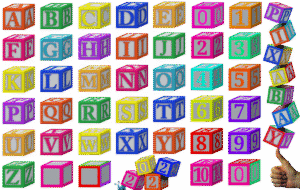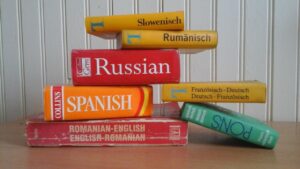How were you at spelling when you were a tyke?

I was an okay speller, but throw a number at me and I’d run like a bat out of . . . well, you get the idea.
I ran across a website the other day (when I was fleeing a number thrown at me) that turned out to be quite entertaining. I think you, as voracious readers and writers, will find it equally entertaining.
It’s all about words . . . words with the same definition, but that have more than one acceptable spelling. Now why didn’t they have those words in the third grade? We coulda had a choice and all have gotten an A on every spelling test, right?
Here’s the link: https://wordsmarts.com/multiple-spellings/
Below is a sample of what you’ll see. And please note: Spell-check red-lined a few of these as I typed the list. 🙂
- Grey/Gray
- Duffel/Duffle
- Adviser/Advisor
And my all-time favorite:
- Donut/Doughnut

Here’s what I’ve been wondering. Is it just the English language that enjoys multiple spellings for the same words?
Any of you speak French or Russian or Latvian and could clue us in?
Two part assignment for TKZers today: Check out the website, then come up with your own words that could have given you first place in spelling bees!

Whodunnit and whodunit are both correct.
Likeable and likable. Spell Czech doesn’t think that “likeable” is likable even though both are correct.
The hard part is remembering to be consistent with whichever one you choose.
Spell Czech. Hahahaha!!!
🙂 🙂
Hi Debbie…Spell Czech–too funny!
Someone once said, “Spelling Gestapo”. Can’t remember who.
Thanks for waying…I mean, weighing in this morning. 🙂
American English is probably the most confusing language out there, Deb! I can’t imagine learning a language with words like there, their, and they’re and bear and bare…
I was a great speller back in the day. Now, not so much.
Morning, Patricia!
I’ve heard that our language is confusing. My sis-in-law is Korean, has a PhD in computer science, and says English is difficult.
Thanks for stopping by this fine Friday!
When I was writing Double Intrigue, I had to commit to travel advisor vs travel adviser.
One of my writing buddies is British, so I’m used to all his extra “u”s
Right now, my challenge is hyphens.
Hi Terry!
Let’s see, hyphen or em dash, hyphen or em dash. My editor always, I mean always finds those pesky things incorrectly used in my MSs. I guess that’s why I pay her the big bucks!
🙂
Have a great weekend!
Fun post, Deb! Judgement and judgment are also both correct. Some British spellings make so much sense, others look strange to me.
Hi Sue,
Didn’t think of those two, but you’re spot on. I prefer the second one–the less letters the better in my book. (Did you see what I did there? Ha!)
Have a good one!
I work for St. Louis College of Health Careers. I write health care (or healthcare) every day. We use both, at random.
My elementary school taught ITA. It is phonetic English. The written ITA had 44 characters. My phonics is great. My spelling is helped a great deal because my computer knows how to spell.
Good morning, Alan!
I worked in healthcare (or health care) for over 30 years, and “random” is a great description of that word usage. Even in the names of facilities it was random. For instance, Spring Valley Healthcare, or Red Rocks Health Care…fictitious names, but you get the idea.
Question: What does “ITA” stand for?
Have a great day!
https://en.wikipedia.org/wiki/Initial_Teaching_Alphabet
Thanks! 🙂
Fun post, Deb. I love our English language—so rich in conundrums (or is it canundrums?)
Hi Kay!
Grok says, “The English language is a glorious mess of contradictions, borrowings, and outright weirdness. It’s like a linguistic junk drawer–full of useful bits, odd tools, and things you can’t quite explain. Here’s a tour of its quirkiest corners.
1. Spelling That Defies Logic
‘Ghoti’ could be pronounced ‘fish’…”
Okey dokey, I’ll stop there. Go ahead, Grok “The English language and its quirkiness” yourself if you need some funsies today!
I’ve read that grey is the British spelling of gray. They also spell practice with an s.
Hi Michelle…
That’s what I heard, too. And the practice and practise spellings. (practise got red-lined…) 🙂
I guess we Americans are still trying to be different than our British cousins, right?
Have a great day!
I have always found this interesting blonde vs blond. From dictionary.com :
“Blond and blonde are two spellings of the same word. If you want to follow the traditional spelling convention when referring to hair, use blonde for girls and women, and blond for boys and men.”
Apparently the same goes for brunette and brunet.
Maybe omelettes are for ladies and omelets are for gentlemen
Hi Robert!
I didn’t know about the gender component. Another quirk of the language, I guess, although I wonder how many authors/editors pay attention to that.
Thanks for stopping by, and have a good weekend…
Right there with you on running from numbers, Deb! Horror!
I’m three years into learning French on my own and still fighting synonyms. Thankfully, I haven’t had to tangle with different spellings of the same word. Honestly, I think French would merely add yet more consonants that would not be pronounced when speaking the word aloud. (Did my extremely hefty eyeroll on that translate through print?)
But I’m infamous for using UK spellings for a great many things, especially “grey” and putting an extra “u” in strange places, like “armour.” It’s a holdover from reading British writers at an impressionable age!
Fortunately, in fantasy writing, I don’t have to worry about “kerb” or “tyre.”
Hi Cyn!
Loved the eye roll, my friend…it was perfect.
Those UK “u” additives! I think they throw them in like greens in a salaud–d’ya like that? 🤡 Yeah, no…
Have a great evening!